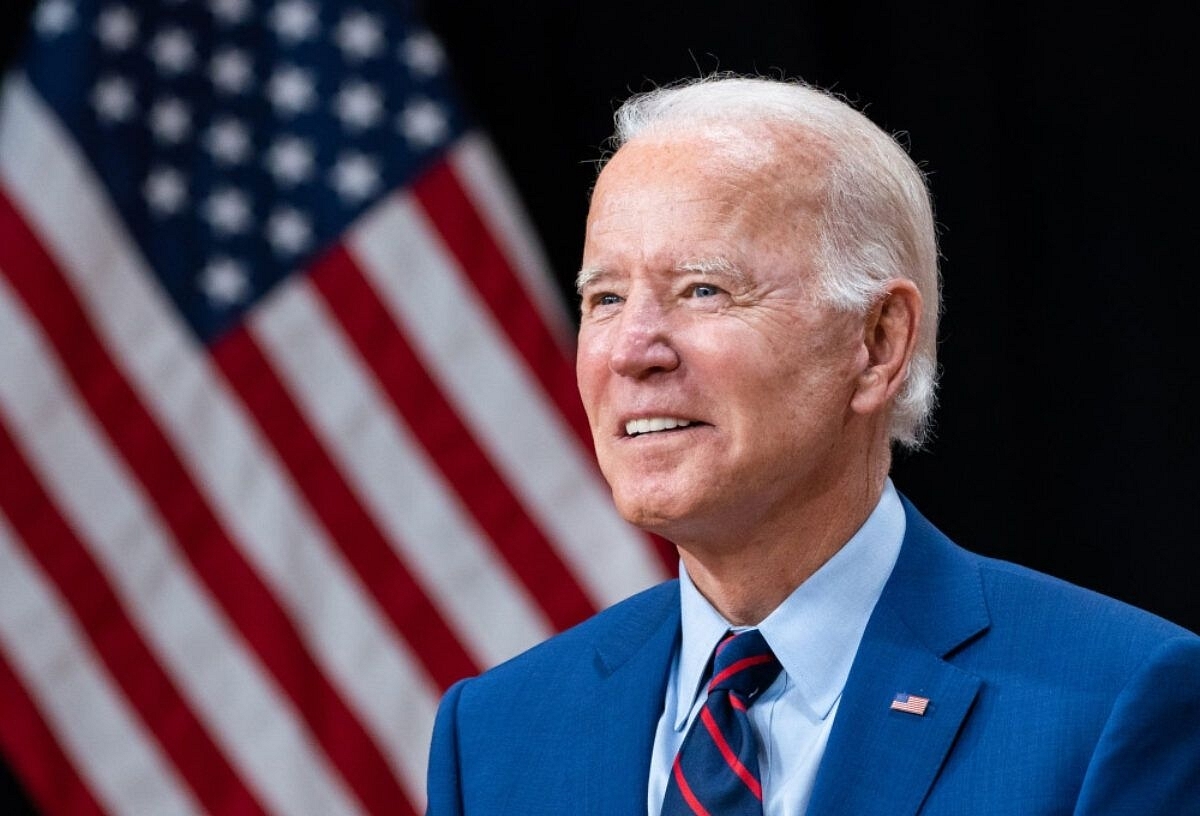News Brief
Explained: Biden’s Not-So-Secret $739 Billion Plan To Fight Inflation
- The main provisions of the 'Inflation Reduction Act' address cost of healthcare and medicines, clean energy, and taxes of corporations.

US President Joe Biden
President Joe Biden’s $1.75 trillion ‘Build Back Better’ Bill is back, this time rechristened as the Inflation Reduction Act of 2022.
After being passed by the House of Representatives last year, the ‘Build Back Better’ Bill lost its way in the Senate after the opposition of Joe Manchin, a Democratic senator, who publicly stated that the bill did not match his envisioned cost. Given all the Republican senators opposed it, the bill was pretty much dusted. The new bill aims at raising $739 billion in revenues, investing $369 billion in energy security and climate change, $64 billion in healthcare, and $300 billion in deficit reduction.
The Inflation Reduction Act Of 2022
The new bill, up for debate after Biden’s rare legislative victory with the CHIPS and Science Act, will have the healthcare provisions, 15 per cent minimum corporate tax, measures to fix the carried interest tax loophole, and proposal to enforce the rules of the Internal Revenue Service (IRS). On the climate and energy front, the bill envisions a spending of $369 billion, significantly less than $550 billion proposed in the original $3.5 trillion bill. Investments would cover areas including tax credits, clean energy, and so forth.
Climate
According to the release from the White House, $369 billion investment in climate change and energy security will usher consumer rebates and tax credits for those making the shift to clean energy. An ecosystem shall be built around clean energy technologies, and from solar panels to EVs, everything will be built within the United States that would boost the consumption of raw materials like American steel while creating employment opportunities, with greater focus on the disadvantaged communities. Forest management and soil conversation are also on the agenda.
Taxation
According to the single page summary released by the Democratic Party, the corporates would be required to pay a minimum tax of 15 per cent. While the corporations are usually taxed at 21 per cent, currently, they employ loopholes to avoid paying higher taxes. With this bill, a hard low ceiling has been set of 15 per cent for companies raking in more than a billion dollars each year in profits. The tax increase is expected to sponsor a majority part of this bill, given it will increase government revenues by over $300 billion.
The government states that annually, it loses more than a trillion dollars due to tax frauds and accounting workarounds, and therefore, the Internal Revenue Service would be equipped with more resources along with investment in millions of dollars to keep a track of the funds lost and to narrow down on companies deploying dubious methods to avoid taxes. For the White House, this is another step to raise revenue through taxes, as the enforcement could increase the incoming revenues by $120-odd billion.
Another $14 billion in revenue is expected by fixing the loophole around carried interest tax that allows money managers to get away by paying taxes at a lower rate of interest. The bill fixes the upper ceiling for taxation at 37 per cent for money managers earning compensation from their clients.
Healthcare
Medicare, the national insurance program of the US government, will now be allowed to negotiate prices of high-cost prescription drugs. For drugs, price negotation is allowed only if they have been on the shelf for certain number of years (9 or 12, depending on the drug). The new bill aims to define a negotiation process that caters to the interest of the manufacturers and consumers both while ensuring drug companies do not employ workarounds to delay the price negotation. The prescription drug pricing reform is expected to increase government revenues by $280-odd billion.
The bill also aims to curb the price rise for drugs, stating that drug companies will have to ensure the increase in costs are proportional to inflation. Any company disproportionately increasing prices would be liable to a tax penalty. The bill also caps the amount senior citizens would have to pay for their drugs annually, at $2,000 for drugs listed under Medicare Part D, against the average spend of around $6,000. The monthly price for insulin has been capped at $35.
Other provisions of the bill include reducing premiums on insurance purchased through the Affordable Care Act, ensuring Medicare reaches the disadvantaged communities, given the high number of uninsured people in them, and cover other benefits. The subsidies announced under this bill will extend the lower premiums, that were otherwise getting over at the end of this year, by another three years, and will cost the government $64 billion.
Bottomline
The bill will be taken up by the Senate later this week, given the lack of Republican support for it, all Democratic Senators would have to vote for the bill, before it is taken up by the House. For long, Democrats have been waiting to usher an act that allows the price for the prescription drugs to be negotiated, and if this bill sees enough support in both the houses, the dream that began with President Bill Clinton in 1993 might turn into reality.
Introducing ElectionsHQ + 50 Ground Reports Project
The 2024 elections might seem easy to guess, but there are some important questions that shouldn't be missed.
Do freebies still sway voters? Do people prioritise infrastructure when voting? How will Punjab vote?
The answers to these questions provide great insights into where we, as a country, are headed in the years to come.
Swarajya is starting a project with an aim to do 50 solid ground stories and a smart commentary service on WhatsApp, a one-of-a-kind. We'd love your support during this election season.
Click below to contribute.
Latest